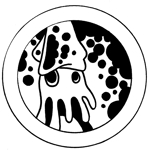(published October 28, 2010)

On the subject of the immortal soul, Edward Witherspoon did not equivocate: he most certainly possessed one. However, he had no intention of allowing it to flit about after he died, to ascend or transform or fly into the body of an infant—whatever the rules of the soul may have dictated. And so he resolved to hold his spirit fast there in the bedroom he shared with his wife. He had surmised that a lead casket would do the trick, and that the window would allow him to observe what went on around him after death.
He could not have been more right. For through chance, fate, second sight—call it what you will—Edward had, in a word, imprisoned his soul.
His initial feeling was one of triumph. It had been his intention to stay by his wife's side after all, to watch his children grow. But Edward soon realized that the lives of those he loved were quite dull without him. His wife, in her grief, took a lover. Then another. Then a third, whom she married. Edward's son, his firstborn, stole money and items of clothing from his step father. Edward's daughter spent most of her waking hours intoxicated. None of them paid Edward any mind at all. Only his dog seemed aware of his presence. It sat for hours, licking at the edge of the casket, until it contracted lead poisoning and died.
Edward had shackled himself immutably to a weary burlesque. The lovers, the children. The living. He tired so quickly of their comings and goings.
But the dead! O, the dead, the glorious dead! The spectacle of them! The wonder. For they, all of them, danced.
Through his narrow window Edward Witherspoon watched as the deceased spun and twirled like petals in a storm. His parents, both quite serious in life, now danced mere feet from him, enveloped in what he could only describe as a preternatural exuberance there in each other's arms. He saw his grandfather, Button Witherspoon, dancing with his wife, Marguerite, their heads thrown back, their faces phosphorescent with ecstasy. And his Great-Grandfather, Casualty Witherspoon, who'd built the house in which Edward's casket rested, and who, when he was little more than a boy, had thwarted an entire encampment of Redcoats using only kerosene and simulated animal sounds; he danced, too.
His dog was there, Edward's dead dog, ever at his side, enjoying the display as much as a dog could. And when Edward's wife passed away she appeared there before his window, nodded, smiled, then slipped her hands into those of her father and waltzed with a grace that transported Edward back to the cautious and exhilarating early days of their courtship.
Those he knew from his childhood, those he knew only from photographs, those he knew not at all, they danced about him with a gaiety for which he soon hungered. He watched the dancing with a longing both anxious and morose, like a young boy on the wrong side of a fence. He cursed his obstinacy, he wept phantom tears.
And then, a full century after his death, fortune smiled on Edward Witherspoon. A young man he did not recognize, some wild-eyed son of a son of a son, stumbled into the bedroom with an axe, raised it above his head and brought it down upon the casket repeatedly until subdued. His final blow pushed the narrow window askew, leaving a gap no wider than half an inch, a gap that would not accommodate a child's thumb. But a gap nonetheless.
And so it was that Edward drifted through the crack between the lead and glass and into the arms of his wife. And so it was the two of them danced, surrounded by ancestors and descendants all dancing the steps popular during their lives: the Harlequine and the Gavotte, the Charleston, the Watusi and the Electric Boogaloo. There in Edward's bedroom, and, when the house was gone, then upon the decimated soil, unencumbered by walls, unremembered by the living, they danced without tiring until the sun, in its own death, engulfed the earth and their spirits wisped off into space.
Tim Christian is a writer and family man fond of a good cup of coffee and a good Giants game.
Share on Facebook
![]() Tweet about this Piece
Tweet about this Piece
by J. Kubusch
by Gwendolyn Joyce Mintz
by Jason Rice
by Gary Presley
by Michael Pelc
by Luminator Thelms
Fiction Archives